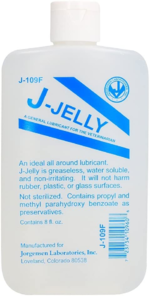Anything that has Parahydroxy benzoate can be considered a slight concern. It's also known as Parabens, which may sound more familiar. Parabens have been found to have a estrogenic effect, among other signs that they could be linked to health concerns of varying natures. However there's (As always) a lot more research that needs doing, both for the health effects of parabens generally, as well as the variations.
The health risks are generally recognised by most regulatory authorities, hence there is a limit on the concentration and whatnot that can be in various products. This doesn't mean that the concentration makes it safe for you, it just means that's the concentration they decided would be best to avoid people making a fuss about it at the time. Whats more, that concentration is for people, not animals, body mass plays a large role in how damaging a chemical is in a given concentration, so at least keep that in mind.
In an ideal world, you'd want something that is either considered biologically inert. However given the purpose of perservatives, that is unlikely to ever exist, so you'd either have to forego commercial products and make your own stuff that doesn't have preservatives and is for immediate use, or make up some other solution yourself, that foregoes those kinds of reagents. Not to mention, this is just one component. American products usually have far more concise disclosures than European ones, so who knows what else is in there. Maybe there's some lead in there, like the baby food.


